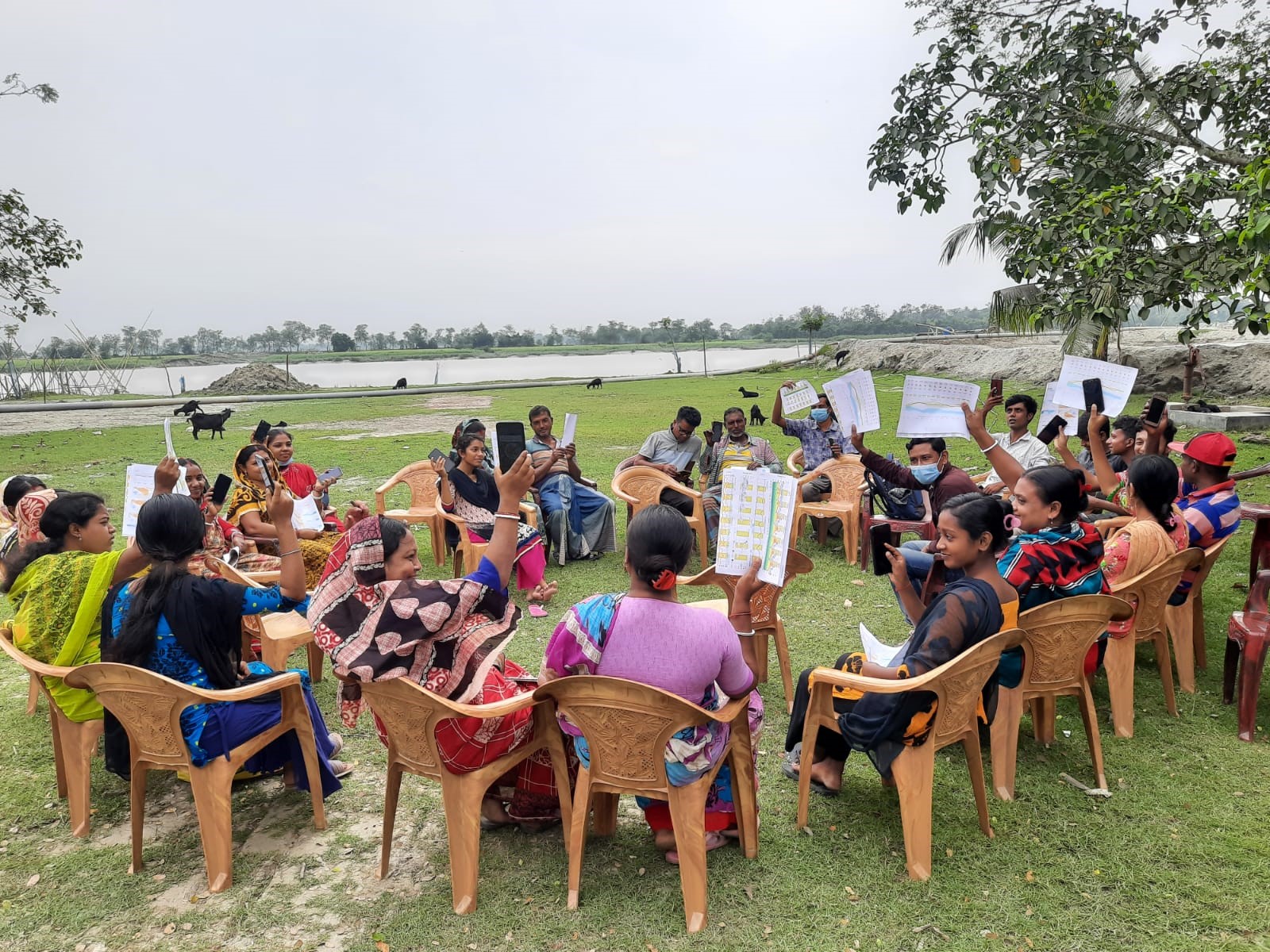South Asia has become an important region for ideological and power conflicts between competing visions for a new world order. Raian Hossain argues that Bangladesh is in an ideal position to secure its national interests by balancing amongst these competing visions. He delineates the main components of a balancing strategy that can help the country achieve this aim.
For long, the developing world, mainly without any choice in the matter, operated its economy, defence, international affairs, and even national politics based on the principles and views of super or regional powers such as United States (US), Japan, Russia, United Kingdom, or even India. This was following the trend set during colonial times and the Cold-War era.
The changing nature of global politics, however, makes it urgent for the developing world, including Bangladesh, to prepare for, and adapt to, new phenomena. Just as the Cold War had split the world in the past, the power-hungry nature of contemporary global politics might place the developing world in such a trap in the near future too.
The debate of Western values over Asian values or Western embedded neoliberalism or debt-trap diplomacy is not new to the developing world. However, any country trying to uphold a neutral position might need to think through a new set of challenges. Since the last decade, the centre of international politics has shifted towards the Indo-Pacific region, which automatically makes Bangladesh a stakeholder in such a process of power-rivalry.
Securing Bangladesh’s National Interests
Global and Regional power rivalry circumstances demand Bangladesh’s diplomacy to boldly analyse each situation through its own lens and prioritise its own economic, strategic, and security needs. The country will have to navigate the pressures of superpowers, rising powers, regional powers, and even super-national institutions to insist that its backyard may no longer be a playground of international or regional politics. Being a rising regional economic powerhouse, Bangladesh’s economy can act as a weapon that enables it to assert that it has the right to choose amongst competing interests, based on its own priorities, vision and need.
At only fifty, Bangladesh became an example for the developing world for its remarkable development and earned the tagline ‘the tiger of Asia’. Just after the bloody war of independence , over 80 per cent of the population was living in extreme poverty, and the newly-born country was among the ten countries with the lowest per capita GDP in the world. Yet, today the country is widely praised for its booming economy and reduction of poverty. The root of such a milestone is focusing on the pathway leading to development.
Undoubtedly, the continuity of development efforts will continue to be, at least partly, based on infrastructure and connectivity in Bangladesh and beyond. This is why Bangladesh welcomed China’s Belt and Road Initiative (BRI) during President Xi Jinping’s visit in 2016 and inked numerous MoU amounting to 26 billion USD for BRI projects and 14 billion USD for joint venture projects. Gowher Rizvi, international affairs adviser to the prime minister, nevertheless, emphasised while speaking about the BRI that the country was refusing to choose sides in the Sino-India-US power race currently developing in the region, by saying, “We must keep [us] out of global rivalry. We need to think of our own interest within our own ideological framework”.
What is essential for the West and Bangladesh’s most trusted friend India to understand is that Bangladesh is looking toward Beijing only because no other power is currently willing to invest such an amount in Bangladesh’s infrastructural development. It is obvious Dhaka’s views on Beijing will not be similar to Washington’s or New Delhi’s due to the differences in their economic and defence capabilities but Dhaka has a right to secure its own national interests first rather than give in to global or regional power rivalries. Further, A recent study by Carnegie Endowment For International Peace on China and South Asia pointed out certain vulnerabilities arising out of Beijing’s influence in the region, but rejected any threats of a debt-trap . However, it is also necessary to mention that there is a lack of credible academic and policy-oriented study and research critically judging the consequences of the Bangladesh–China economic and investment structure. Bangladesh must do a cost-and-benefit analysis on this based on its national interests.
The Role of the Balancer
The global and regional power rivalry opens the door for Bangladesh to utilise and maximise its own interests. Its traditional stance of neutrality in global politics so far makes this possible. An example of the benefit from this is the case of Japan. Despite Japan being a long-time contributor to Bangladesh’s development, it has increased its infrastructural and economic investments like in the country’s first Deep seaport in Matarbari, Metro Rail Project in Dhaka, special economic zones and so forth. For same reason, Bangladesh–India trade is reaching new heights, where Dhaka’s export to New Delhi is expected to reach $2 billion for the first time by end of 2022.
In the same vein, neutrality also opens the door for Bangladesh to be a part of the Build Back Better World initiative by G-7, as long as it does not come along with preconditions. Instead, it would be wise for the US and its like-minded partners to strengthen their relationship with Bangladesh to cooperate in their Indo-Pacific goals.
While becoming a playground of super or regional powers would reduce its own capacity in the future, neutrality provides Bangladesh with the opportunity to say no ,
and look for the next best alternative. China and India’s stand on the Rohingya refugee crisis and the US’s and European Union’s on human and labour rights, or removing and adding countries on the Generalised System of Preferences/ Generalised Scheme of Preferences, reflects how each country’s or alliance’s decisions are based on its own motives and interests; Bangladesh must also think for its own.
In a globalised and interconnected world, however, the balancer role does not preclude inclusive development beyond material and infrastructure issues. Bangladesh should continue to cooperate on common challenges and finding mutual solutions on climate change and sustainability, women’s empowerment, terrorism and violent extremism, and refugees and migration crises. Despite how much Bangladesh looks toward the East, it will also need to continue to partner with the West and its like- minded partners (Japan, Australia, South Korea, United Kingdom and European Union) regarding pressing global issues and concerns. Since Independence, Western countries and their allies have supported inclusive development in Bangladesh’s rural areas at a grassroots level in a manner that is definitely praiseworthy. Bargaining among super and regional powers has allowed the nation to gain support toward its challenges, such as Rohingya refugee repartition, climate finance or even Teesta River dispute.
It would be wise for Bangladesh to improve relations or initiatives bilaterally or multilaterally and avoid joining in any grand strategy driven by security or defence motives. Its engagements in any joint training and dialogue, have to be very transparent and not give rise to any confusion, like China’s setting up a missile maintenance centre in Bangladesh. Bolstering ties with regional partners within The South Asian Association for Regional Cooperation (SAARC) and The Bay of Bengal Initiative for Multi-Sectoral Technical and Economic Cooperation (BIMSTEC) will be an essential tool in its balancing act. Bangladesh’s success in Covid vaccine diplomacy benefitted from its relations with the West and East equally.
A word of caution, however, as Bangladesh needs to also ensure that it does not further drift from its founding principles and values such as democracy while playing a smart balancing role in maintaining its affairs with super or regional powers but prioritising its national interests at the same time.
Banner Image: Photo by Markus Krisetya on Unsplash.
The views expressed here are those of the author and not of the ‘South Asia @ LSE’ blog, the LSE South Asia Centre, or the London School of Economics and Political Science.







